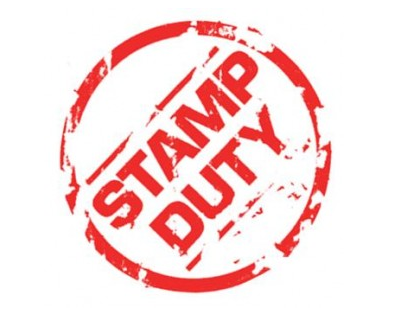Yet the property industry has spoken, almost as one, in its desire to see further reform of stamp duty: the most fanciful have called for its abolition, while the more realistic have requested reform to ease the burden at the high end of the market.
It brought in £12.4 billion income to the government in the year to July 2017 - another reason it will almost certainly remain unchanged on Wednesday - but of course it wasn't designed to be the cash cow that it has become today.
Stamp Duty has the most remarkable history in the UK, having at one time applied to printed publications of most kinds, apprenticeship costs, some clothing, domestic and gambling game equipment such as dive and playing cards, insurance policies and a wide range of cosmetics and medicines. Older readers will remember that in the middle of the last century, there was even stamp duty on a cheque.
What is interesting, and perhaps gives rise to anger amongst the more historically-minded estate agents, is that the stamp duty on almost every item has been scrapped or fallen out of use - but not on property.
Now there are relics of stamp duty remaining on the transfers of shares and securities, some share and bond certificates and specified business transactions involving partnerships - but these are relatively low cost duties.
Not so in the world of property where what we now know as Stamp Duty Land Tax was first introduced only relatively recently - the late 1950s - but which has become more prominent and expensive since that time.
When it was introduced it was simple and low: you paid nothing at all on a home up to £30,000 and then one per cent of the purchase price above that threshold. The average priced home was only £20,000 so relatively few paid any stamp duty at all.
Twenty five years ago, however, while the threshold was doubled to £60,000 to match escalating house prices, there were also more complicated exceptions and new 'sub-thresholds' introduced. It was at this point that the rot probably started.
By the year 2000 there had been a series of increases, there were four rates instead of two, and the highest became a record (for its time) four per cent.
In the past 15 years the duty has become a highly controversial tax, changing frequently and seen as a huge revenue source for Labour and Conservative governments alike.
So in 2012 a new seven per cent rate was introduced for homes priced £2m or more; by late 2014 that had risen - yet again - to 12 per cent for homes over £1.5m. Hitting London in particular, stamp duty on homes over £937,000 became a hefty 10 per cent.
For people buying an additional home - a city pad, holiday home or buy to let investment - the maximum stamp duty is now 15 per cent because of a surcharge introduced in 2016.
So what was, two generations ago, a tiny sum that people factored in to their purchase cost, it’s possible now to pay £150,000 stamp duty on a home costing £1m - and that is a very typical price for many properties in central London especially.
That 2014 reform, of course, reduced stamp duty for the very large majority of buyers; however, it remains a stumbling block for today's first time buyers, for those investing in buy to let and, of course, some of the very wealthy who can just as easily buy a home in a different capital city where the duty is lower.
My guess is that for political reasons, stamp duty won't change on Wednesday; even if it does, expect only minor tinkering probably to benefit first time buyers.
The days of it being low, simple and not even applied to most transactions have long gone. All the lobbying in the world won't bring a return to that era...
*Editor of Estate Agent Today and Letting Agent Today, Graham can be found tweeting all things property @PropertyJourn



















%20A%20property%20tale%20for%20our%20times.png)







Join the conversation
Be the first to comment (please use the comment box below)
Please login to comment